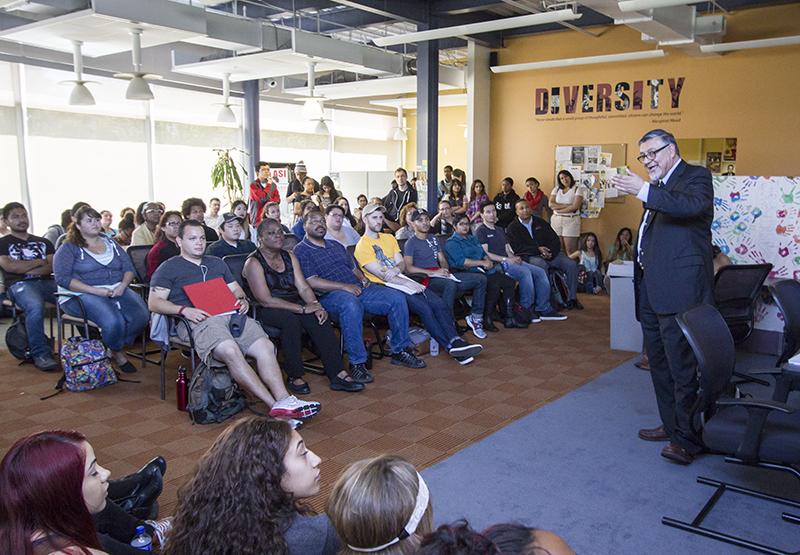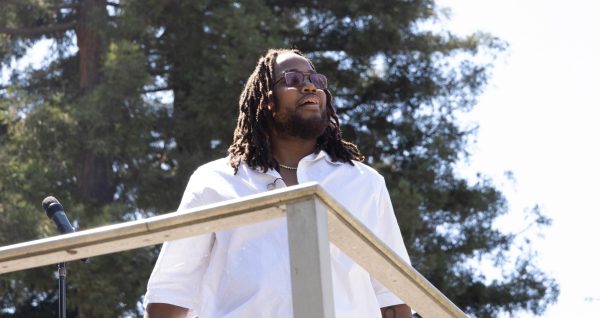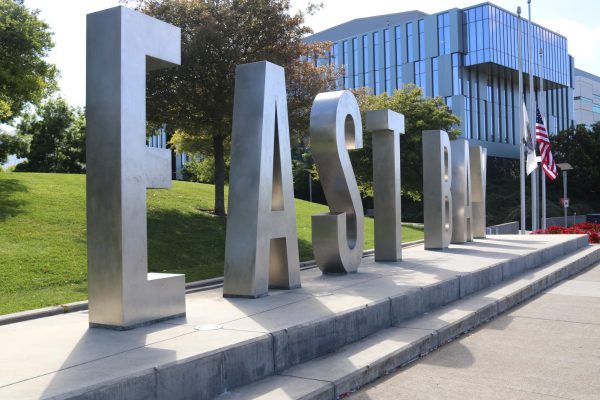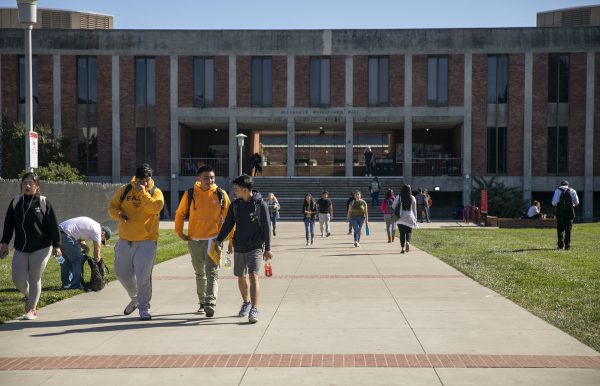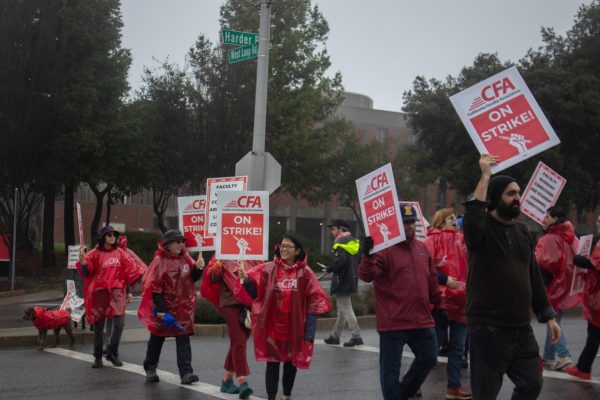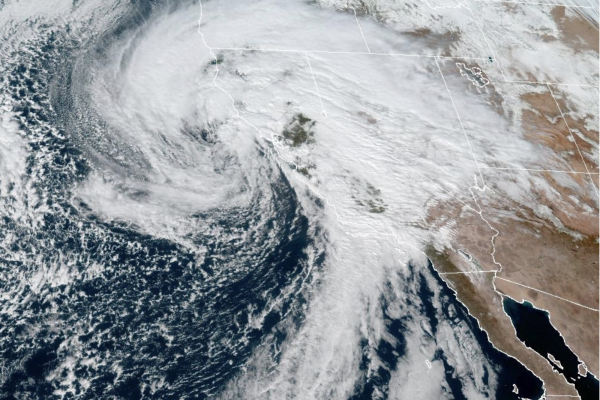Cinco de Mayo’s American roots
David Hayes-Bautista spoke to crowd of students, staff and faculty members in the New University Union’s Diversity Center last Tuesday.
April 21, 2014
David Hayes-Bautista, Ph.D, professor of medicine and director of the Center for the Study of Latino Health and Culture at UCLA, spoke to a packed crowd in the New University Union’s Diversity Center about Cinco de Mayo’s historical origins in California.
Bautista was asked to visit the campus last Tuesday to deliver his presentation, “We are all Americans: The Cinco de Mayo and U.S. Civil War,” as part of Chicano Latino Heritage Month. The Diversity Center’s speaker series ‘Between the Lines’ is held in conjunction with the celebration of a monthly student-selected cultural exploration.
“Why is Cinco de Mayo celebrated in the United States and not celebrated in Mexico?” asked Bautista rhetorically to his audience. “Because it’s not a Mexican holiday, but rather an American one.”
When the vastly outnumbered Mexican army defeated the French, it was an electrifying moment for the Latino community in California, said Bautista.
The celebration in Mexico is primarily in the state of Puebla where the holiday is held to pay tribute to the Mexican army’s victory over the French at the Battle of Puebla on May 5, 1862.
According to Bautista, The Ladies’ Patriotic Assemblies, or Juntas Patrióticas de Señoras, an organization run by Latinas in California helped raise funds and goods to send to the men in Puebla, Mexico to help fight the war against France.
“This shows us the fundamental struggle for democracy and freedom, which brings us to this day that is celebrated by Chicanos, Latinos and Hispanics in the United States,” said L. Iliana Holbrook, CSUEB professor of modern languages & literatures
According to Bautista, he was struck with bewilderment when he found out the first Cinco de Mayo celebration was created by Latinos in the United States, and began in Los Angeles. He explained he thought the information he found was important to share and wrote a book about it titled, “El Cinco de Mayo: An American Tradition.”
Bucket Manyweather, social justice coordinator for the Diversity Center, said Cinco de Mayo in America is not often discussed aside from the drinking and partying elements of the holiday.
The purpose of the event, according to Manyweather, was to share the true meaning behind the celebration and history of Cinco de Mayo.
“We want people to learn the true culture and truth while it’s Chicano and Hispanic heritage month,” stated Manyweather.
Lettie Ramirez, Ph.D, professor in the Department of Teacher Education, said she thought the presentation brought attention to a historical event she believes is not well known but ought to be.
“Continuous learning is always a great way to understand cultures,” said Ramirez. “Presentations are always a great way to learn about our culture, other culture[s] and history, especially since California was a part of Mexico.”




